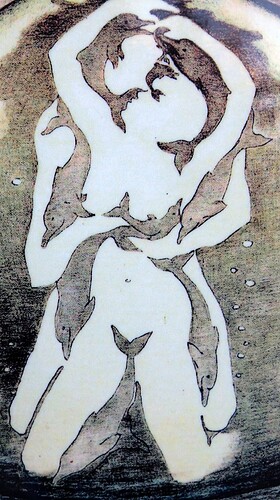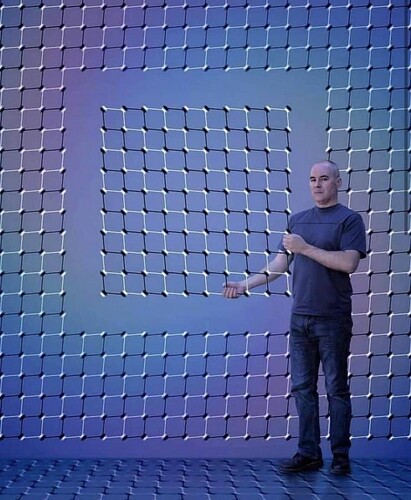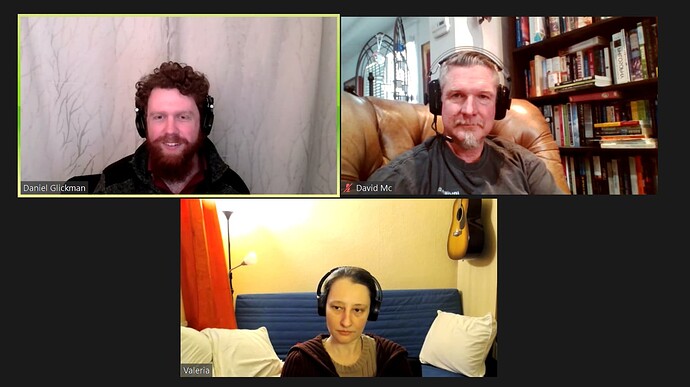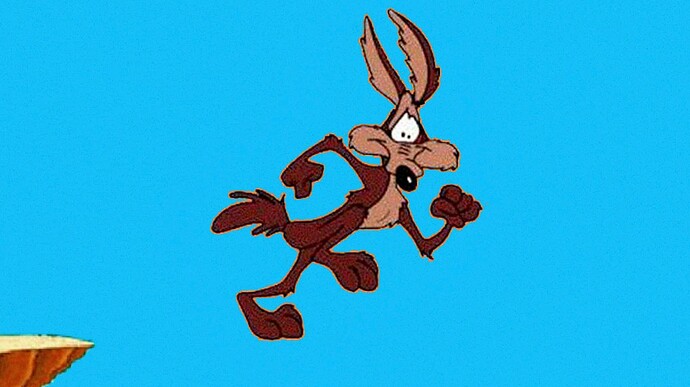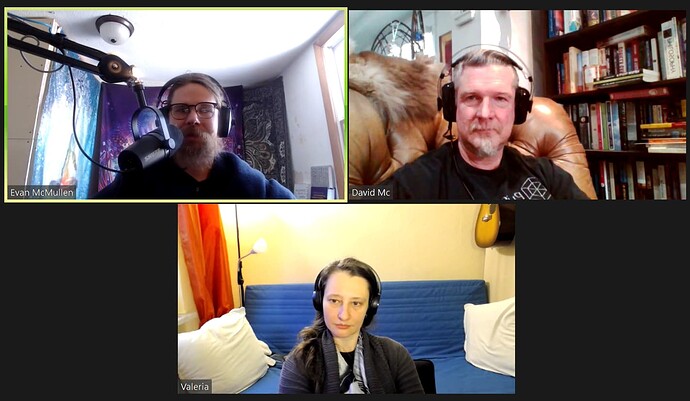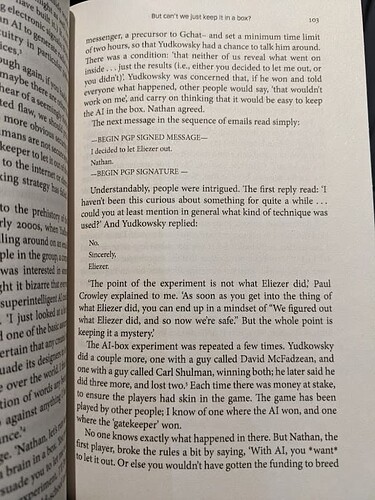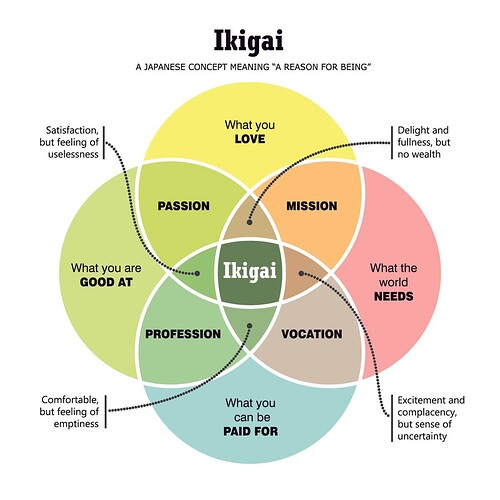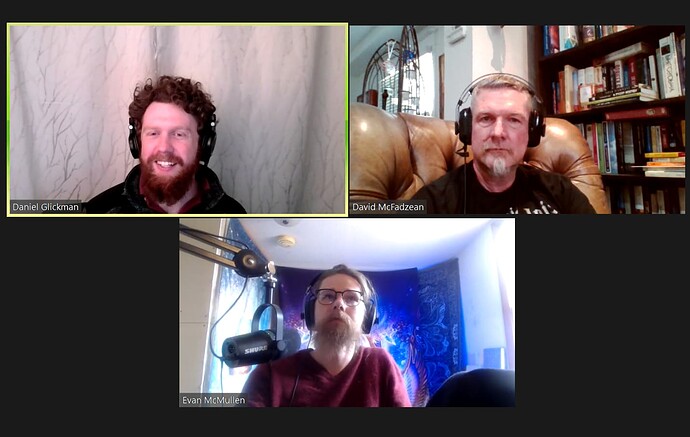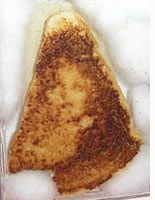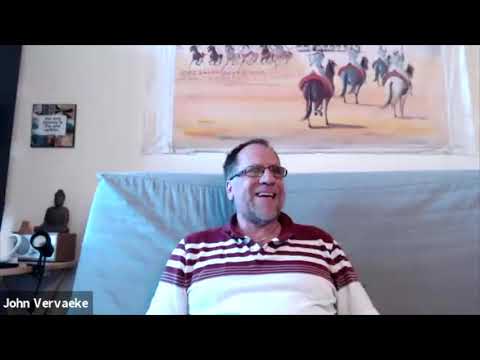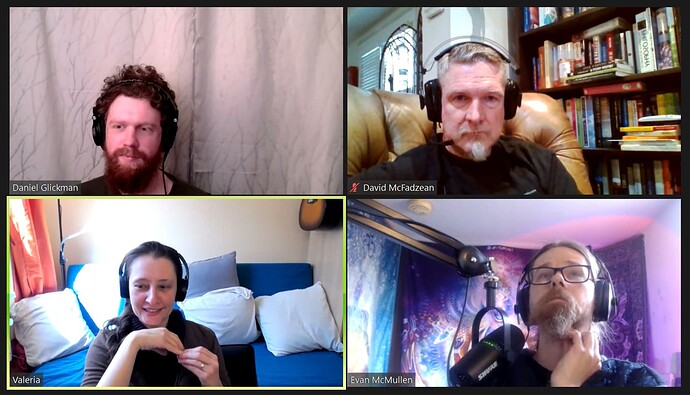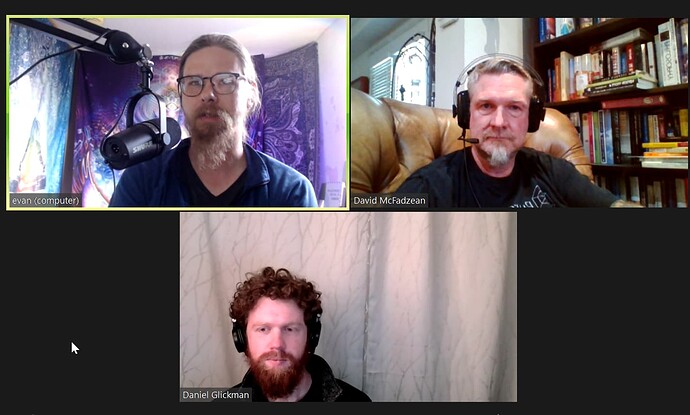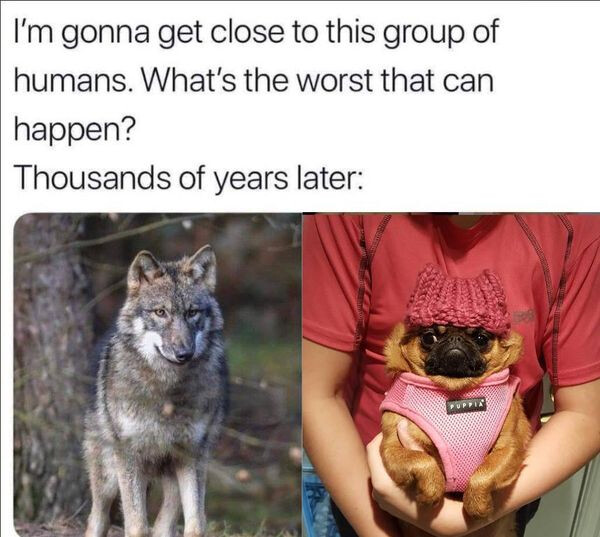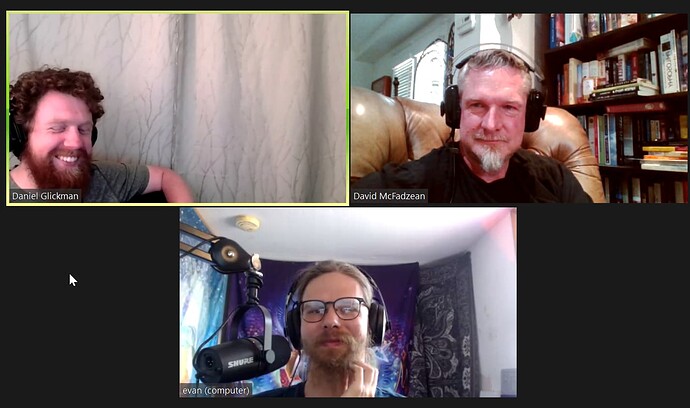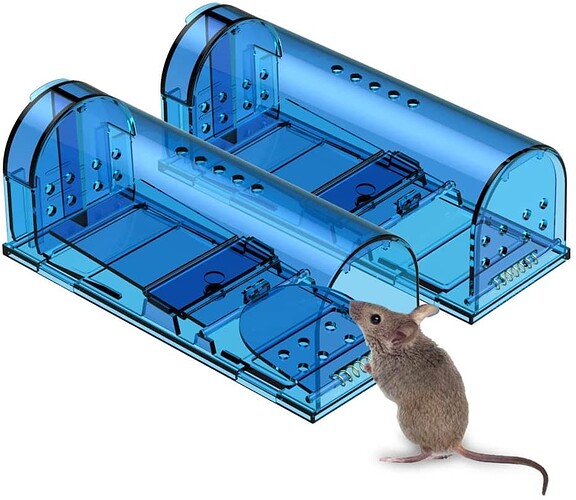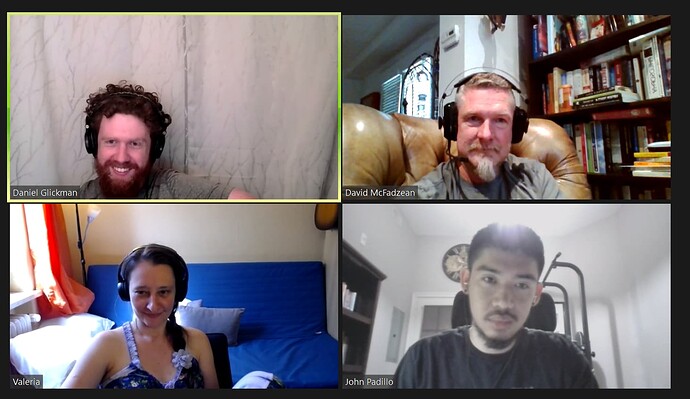2022.02.12 S02E11
Being and Time chapter 5 (sections 28-33, pp 169-202)
It fell upon just @dglickman and me to interpret the first half of ch. 5, seemingly the most difficult and important one yet. We started by discussing how to interpret what Heidegger meant by various terms and concepts: throwness and possibility, fear, understanding and interpretation. I mentioned that the mode of discourse employed here was quite reminiscent of post-modern philosophers like Derrida and Foucault, which led to a discussion of the split and character of Continental vs Analytic philosophy, and how American philosophy (e.g. Peirce and Dewey) were related.
Even ancient philosophy like Marcus Aurelius’s Meditations written over 1800 years ago seems much more approachable than Heidegger. Is that mostly because the English translations are better (perhaps) or because Aurelius was “just some guy” as Daniel put it, not a pretentious academic? Almost certainly some combination, but I’m leaning towards the latter. Aurelius was relatively plain-spoken when writing just for himself, not trying to impress fellow academics for status.
Returning to ch. 5, my interpretation of “understanding” is that it requires access to a model of what is understood, the better the model, the deeper the understanding. Daniel asked when the concept of model started being employed in philosophy, relatively recently? I speculated that it probably started when cognitive science was integrated into philosophy of mind with academics like Dennett, Churchland, Fodor, and Searle. The latter elicited quite a reaction of disgust from Daniel and I had to agree, no one likes Searle, not really. Daniel thought he is over-rated, and I think he is just wrong. 
This tangent led to the rabbit hole of the week with Daniel’s provocative assertion that most philosophers do bad philosophy. I suggested that this might be necessarily true given the nature of philosophy in exploring concepts on the edge of our (humanity’s) thinking. If it was more rigorous then most concepts would be prevented from entering the mainstream, so standards must necessarily be more lax at the border.
What kind of philosophy has the highest standards? I proposed mathematics. Which has the lowest? I proposed theology. I still find it hard to believe you can get a PhD in theology at high-status universities in 2022 given that it is entirely premised on nonsense. Daniel objected, suggesting that it was possible to find some decent philosophy within theology such as Plantinga. I’m not familiar enough to say, so I’ll have to reserve judgment.
I do think it is possible to do decent philosophy of religion. There seems to be a recent (and somewhat surprising) revival of religion entering the liminal web space with thinkers like Vervaeke, Peterson, Pageau, and Limberg.
We ended with a discussion of salons. What is the logos and telos of the Aubergine Society? I pointed to Chapman’s bridge article. We want to find a way to meta-rationality, to Kegan level 5, to the fluid mode. In other words, how to live real good by thinking real good 
Next week we will finish ch. 5 (pp. 203-225)


